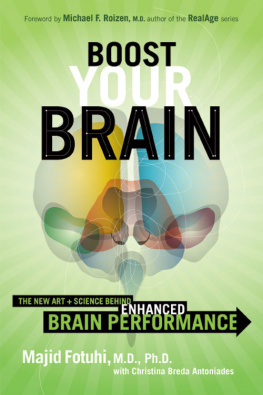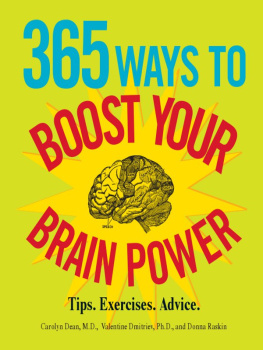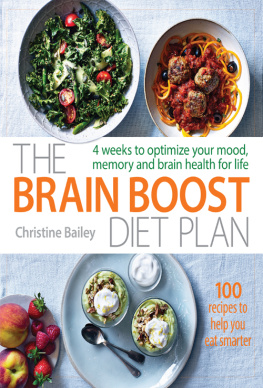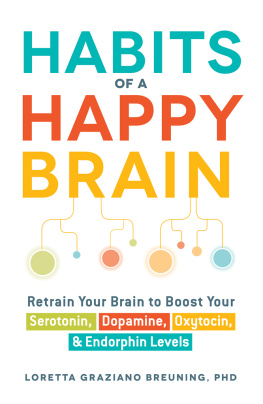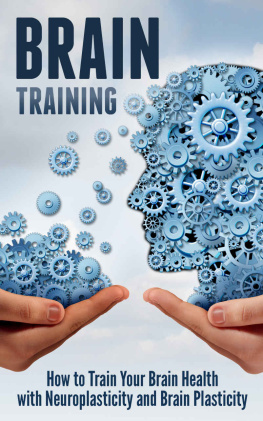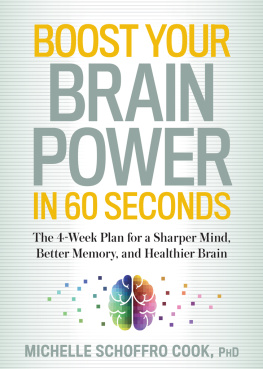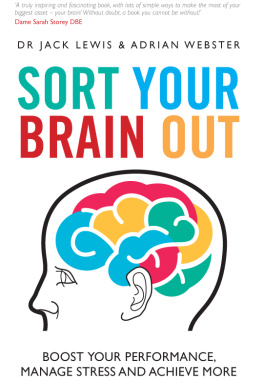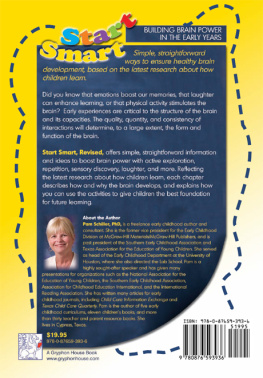To our children,
Nora and Maya and Vasili, Marguerite, and Eleni,
whose amazing brains are only at the start of a wondrous journey
Contents
This book may be the most important youll ever read. Certainly what Dr. Fotuhi teaches in this book has changed my life. Surprised? I was.
What Dr. Fotuhi teaches has given me new enthusiasm for life: I now feel confident about my memory and brain performance. Learning how to memorize a list of twenty things, and then fortyforward and backwardin just about an hour, made me realize that I could do it, something I doubted strongly just a few weeks ago. I soon applied my newly discovered strategy to remember names at a dinner party and was thrilled to discover that I am now actually good at remembering names, something I always felt was my weakness. Learning about the cutting-edge research on how simple lifestyle changes can increase brain size provided new incentive to be more conscious about everyday choices. The information in this book supercharged my energy and attitude toward brain aging.
If youve read the RealAge or YOU books or caught me talking about aging on TV, you know I strongly believe that when it comes to longevity and living well, your RealAge depends less on what the calendar tells you and more on how you choose to live your life. Science backs this up: theres clear evidence that certain choices lead you to better health, which can make you yearseven decadesyounger than your chronological age.
Ive put the science to work for myself: my RealAge puts me at forty-six, far younger than my calendar age of sixty-seven. But before reading Boost Your Brain , Ill admit I was beginning to worry Id hit the tipping point for brain function. Yes, I knew trickslike taking a daily dose of algal DHAto keep the house I live in much younger than its chronological age, but I was afraid my electrical systemmy brainwas constructed of fraying copper wires that couldnt be upgraded to serve up the power the modern computer-world demands. Dr. Fotuhi changed my attitude and understanding. He taught me new secrets, like how to do the exercises I was already doing but in a way to increase my brain size and memory. And Dr. Fotuhi convinced me to reinstitute some of the steps Id started to skip.
How much can these steps really matter? A lot. As a matter of fact, how long you live once you pass the age of thirty (genes play a large role early in life) and how healthy you are while alive is largely determined by the choices you make. By the time you reach the age of fifty, lifestyle factors account for a whopping 70 percent of your health and longevity, with genetics accounting for just 30 percent.
This may well fly in the face of the way youve always viewed aging. Many peopleeven doctors!think that you reach your peak quality of life in your mid- to late twenties and then inevitably begin a long slow decline that lasts the rest of your life. Theres a reason that perception has held sway for so long: its true. Or at least, its true for most. Provided you do nothing about it, you can expect every function in your bodyyour lung function, heart function, muscle mass, bone mass, even your IQto decline by 5 percent every decade, beginning right around your thirtieth birthday.
In public speeches I sometimes illustrate this with a rather telling slide that shows the results of a study of Harvard physicians. The study, which launched in 1952, tracked the physicians IQs over their life span and the resulting downward curve shows that on average their brain function fell by 5 percent every ten years. If youre over the age of thirty you might find this discouraging. But youll probably admit that its also not that surprising. After all, dont most people feel more forgetful and mentally fuzzy as the years pile on?
If you drill into the data from that study of Harvard physicians, though, youll find the curve also offers some promising news. Looking beyond the average youll find a group of people who seem to defy nature: 25 percent of the physicians dont show any decrease in their brain function as they age. Thats right: theyre as sharp at eighty as they were at forty.
The question on everyones mind when they see that slide is, understandably, How do I join that club?
Youll be happy to hear that although its a small club, its not really that exclusive. You dont need to have won the genetic lottery to get in. You dont need to be a Harvard physician, or wealthy, or well connected. Admittance largely comes down to the lifestyle and choices you make in your life.
At the Cleveland Clinic, weve ushered thousands of people into this club by developing programs that help employees improve their fitness, eat a healthier diet, manage their stress, and quit using tobacco. The programs have been wildly successful, helping our employees become many yearsor even decadesyounger than they were.
Ive seen firsthand the incredible impact moderate lifestyle changes can make, even when theyre started later in life. Its part of the reason I was so intrigued when I first heard of a Baltimore-based doctor with a novel approach to helping improve patients memory and thinking.
At his Brain Center, Dr. Fotuhi has pioneered a whole-body approach to brain health that incorporates cutting-edge, neuroscience-based strategies specifically designed to maximize mental function. Through his twelve-week brain fitness programa sort of boot camp for the brainDr. Fotuhi helps his patients grow (yes, that is the right term) their brains and improve their memory and thinking. (As a bonus, they almost always improve their overall health as well.)
In Boost Your Brain, Dr. Fotuhi brings that twelve-week program to readers: analyzing, distilling, and translating into plain English the groundbreaking discoveries that allow you to make your brain years or decades younger and really tap in to its amazing potential. Beginning with an understandable introduction to the basics of brain science, Dr. Fotuhi elegantly explains an idea that even some doctors have yet to fully grasp: the adult brain is incredibly malleable, growing (and shrinking) based on your behaviors and choices. Thats incredibly important given, as Dr. Fotuhi will tell you, that the brain is the only organ in the body where size matters. Taking steps to help the brain growwhether youre thirty, sixty, or ninetynot only helps your brain function better, but keeps it younger longer.
Boost Your Brain details the science behind four key brain boosters and guides you to custom-create your own twelve-week brain fitness program. Along with his step-by-step prescription for brain growth, Dr. Fotuhi delivers more real-world advice on how to avoid lifes many brain shrinkersfrom excessive stress, to hypertension, to chronic insomnia, and more.
His program and this book come at a time when chronic health conditions like diabetes, unmanaged stress, and obesitythe very problems that keep us out of the 25-percent clubare poised to reach unprecedented proportions. And it arrives on the leading edge of a wave of scientific discovery that allows experts like Dr. Fotuhi to understand the workings of the brain like never before.
If youve ever thought youd love to get back the brain you once had, or have a forty-year-old brain when youre sixty, this is your chance. Youre not bound to the brain your birthday says you should have. With Boost Your Brain , a bigger, younger brain is yours for the taking. Grab hold. I have, and you can, too!
Michael F. Roizen, M.D.
Your Bigger, Better Brain Is Within Reach
Youve just walked into a meeting and youre confronted with a familiar face. Youve met him at least a half dozen times, chatted with him about the weather, the annual summer picnic, and your companys latest sales figures. Youre about to say hello when, with a sinking feeling, you realize you have no idea what his name is. Or rather, you know it. You know you know it. But as you walk toward him with a rising sense of panic, your brain stubbornly refuses to deliver the goods. Jeff ? Jim? Jordan? You think to yourself, not for the first time, Why cant I just remember?

